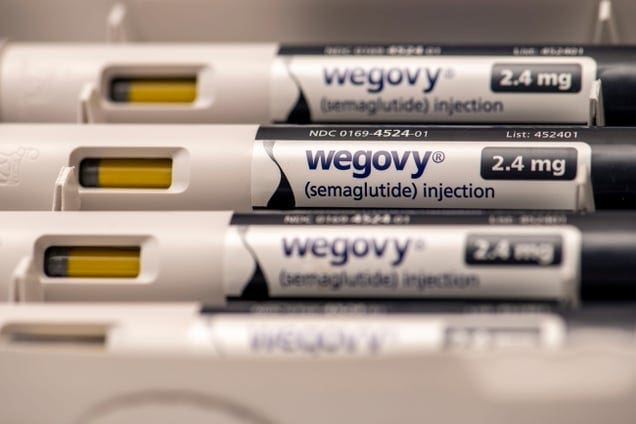Weight loss drugs are not just about shedding pounds; they are reshaping how Americans engage with healthcare.
Popular medications such as Wegovy and Zepbound are doing more than just helping people lose weight. They’re spurring an increase in doctor visits and triggering long-overdue health diagnoses, according to a new analysis by health data firm Truveta. As these drugs gain popularity, they’ve inadvertently served as catalysts for many to seek medical attention they otherwise might have avoided.
In a study conducted by Truveta, thousands of electronic patient records from 2020 to 2024 were examined, revealing a significant rise in new diagnoses of sleep apnea, cardiovascular disease, and type 2 diabetes occurring shortly after patients began GLP-1 prescriptions. These drugs, which mimic a hormone that controls appetite and blood sugar, have pulled people who previously shunned doctors due to stigma or bias into medical offices for treatment. Consequently, many are being diagnosed with other obesity-related conditions once they decide to pursue GLP-1 prescriptions.
The numbers tell the story. In 2024, for every 1,000 patients starting a GLP-1 prescription, 42 were diagnosed with type 2 diabetes within just 15 days, compared to 32 in 2020. Sleep apnea diagnoses jumped to 11 from 8 per 1,000 patients, while cardiovascular disease diagnoses increased to 15 from 13. This uptick highlights not only the medical benefits of these drugs but also their broader impact on healthcare engagement.
Interestingly, even companies outside the pharmaceutical realm are feeling the effects. ResMed, a manufacturer of sleep apnea devices, reported an 11% revenue increase this year, attributing part of this growth to the rise of GLP-1 drug usage. Michael Farrell, ResMed’s CEO, pointed out in a meeting with investors that these medications are driving people to primary care in unprecedented numbers.
GLP-1 medications, which became well-known through Novo Nordisk’s diabetes treatment Ozempic, have become highly sought-after solutions for obesity and Type 2 diabetes. Alongside Ozempic, Wegovy, and Zepbound are leading the charge, turning Novo Nordisk and Eli Lilly into two of the largest pharma giants globally. However, the ripple effects of this surge in drug demand are now being felt across various facets of the healthcare industry.
The rise of GLP-1 weight loss drugs has brought a new wave of patients into healthcare facilities, allowing for earlier diagnoses of conditions that might otherwise have remained undetected. As more people embrace these medications, the healthcare landscape is experiencing a significant shift, highlighting not just the efficacy of the drugs but their crucial role in increasing medical engagement.
Source: Yahoo







